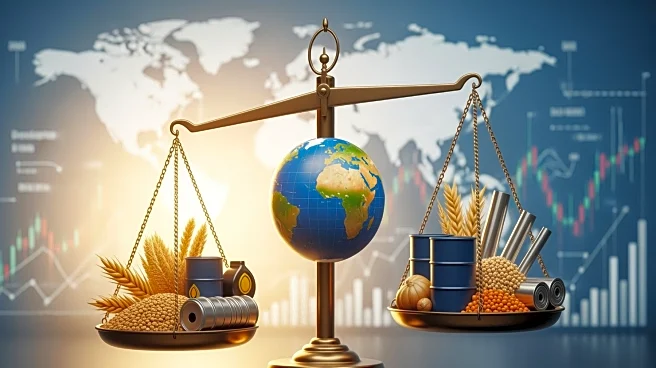What's Happening?
The Russia-Ukraine war has severely disrupted global markets for food, fuel, and fertilizer, impacting developing countries significantly. The crisis has led to rising commodity prices, affecting agrifood
systems, poverty, and food insecurity in 19 countries. The macroeconomic effects of rising prices depend on countries' unique economic structures, with household consumption and poverty most affected by higher fuel and food prices. The crisis has raised concerns about the impacts on global poverty and food insecurity.
Why It's Important?
The war's impact on commodity prices has profound implications for developing countries, affecting food security and poverty levels. The interconnectedness of global markets means that the economic impacts of the war are felt far beyond the immediate region, necessitating coordinated international responses. The crisis has highlighted the vulnerability of global food systems and the need for comprehensive strategies to address food insecurity.
What's Next?
As the conflict continues, developing countries will need to adapt their economic policies to address the ongoing challenges posed by the war. This includes implementing strategies to stabilize food systems and mitigate the impact of rising commodity prices. International cooperation will be crucial in addressing the broader economic implications and ensuring food security for vulnerable populations.
Beyond the Headlines
The war has exposed the limitations of international institutions in addressing major conflicts and highlighted the need for reform in global governance. The conflict has accelerated the trend towards a multipolar world order, with rising powers such as China and India playing a more prominent role in global affairs. The humanitarian crisis will have long-lasting effects on the affected populations, particularly children, and will require sustained international support.










